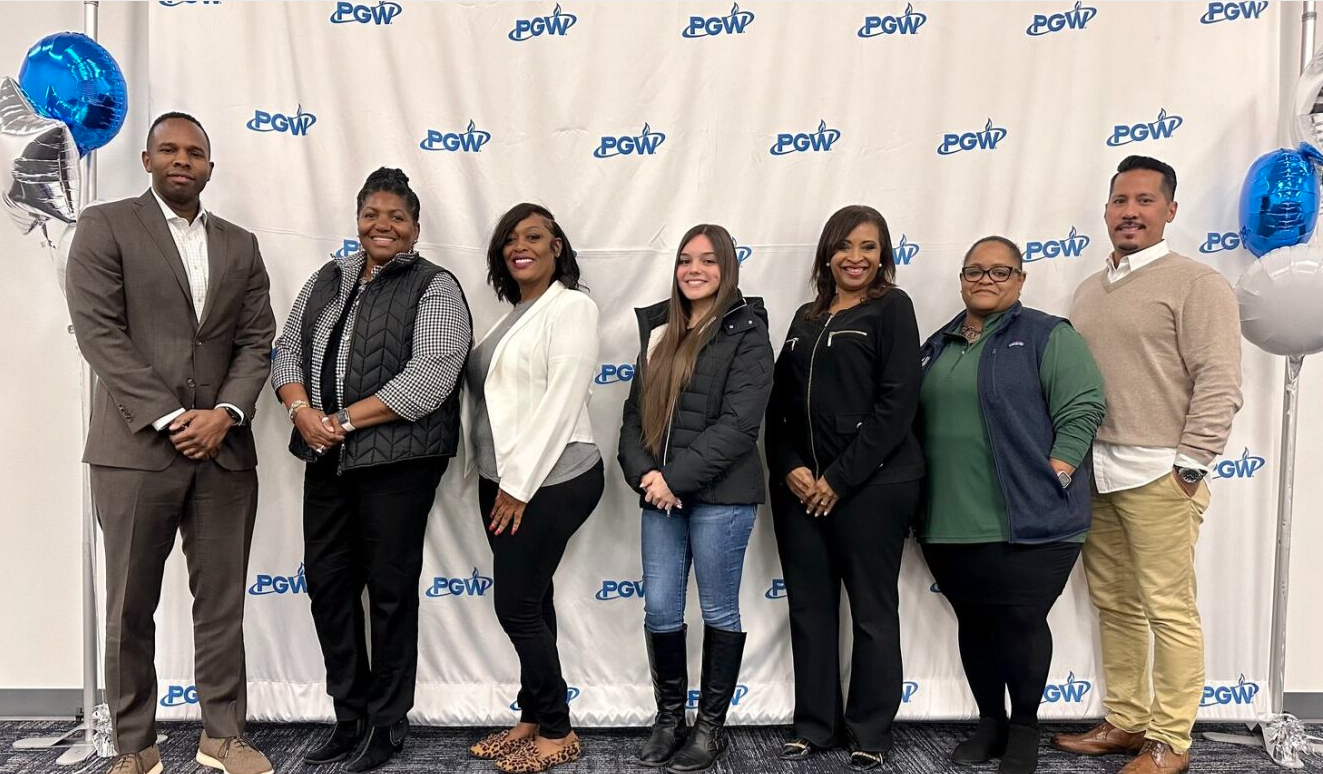Press Releases
PGW Introduces the PGW Diverse Business Development Program
For some Greater Philadelphia companies looking to grow their business, gaining access to information, or acquiring the right contacts, can be a barrier to greater success. Recognizing the challenges these businesses face, Philadelphia Gas Works (PGW) established the PGW Diverse Business Development Program (DBDP): Fostering Diverse Enterprises and Promoting Economic Expansion, a nine-month educational approach to help diverse and local suppliers prepare for and navigate the procurement process and potential contracting opportunities in the natural gas industry.
The program is a win-win opportunity for all involved: PGW can increase its potential diverse vendor pool; businesses interested in the natural gas industry will gain valuable knowledge and experience; and Philadelphia communities benefit through increased economic and job opportunities.
“PGW’s Diverse Business Development Program is a great way for us to foster, develop, and coach those small diverse organizations on how to work with companies like ours and gain a competitive advantage,” said Dr. Erica Patterson, Director of Contract Management and Supplier Diversity at PGW.
The inaugural cohort of seven diverse business professionals arrived at PGW’s new North Operations Center on October 18, 2023, to begin a nine-course curriculum – developed by PGW – tailored toward gas main replacement construction. Future cohort participants can help mold a clean energy future for Philadelphia.
Throughout the duration of the program, the program participants will:
- Learn how PGW operates to provide the City of Philadelphia with safe and reliable natural gas service.
- Understand how to navigate PGW’s procurement process and compete for contracts.
- Obtain up-to-date natural gas industry-related information.
- Gain access to and build relationships with PGW decision-makers.
As the program proceeds, each business will have the opportunity to learn and understand the qualifying requirements of our gas main replacement program and future contract opportunities through trainings, assessments, and demonstrations with small pilot projects.
The program will be conducted monthly with a hybrid structure offering both virtual and in-person learning modules that will run from 8:30 a.m. to 5:00 p.m. (most modules) at PGW’s offices. Once the program concludes successfully in June 2024, each DBDP participant will earn a certificate of completion from the program.
The seven businesses participating in the inaugural cohort of PGW’s DBDP are:
|
|
|
|
|
|
|
“PGW is honored and happy to put this program into place and grateful to the business executives who joined this endeavor,” said Dr. Patterson. “This program will not only benefit the professional business owners enrolled, but also help the community PGW serves to grow and promote an inclusive environment through corporate-community partnerships.”

(Left to right)
William Bowie, President & CEO – Empower Construction, LLC, Patricia LaRoche, President & Owner – Cameron Associates 8, LLC, L Elaine Johnson, President – LaPutt Enterprise, LLC, Dominiques Fragoso, Project Administrator Assistant – G&B Construction Company, Pat Sanford, CEO – Alexander Perry, Inc., Valarie Cofield, Executive Vice President, Business Development – Carr & Duff, LLC, and Jonathan Cedotal, Owner - Cedotal Construction.
PGW RECOGNIZES NATIONAL PUBLIC NATURAL GAS WEEK
PHILADELPHIA (October 3, 2023) – Philadelphia Gas Works (PGW) joins the American Public Gas Association (APGA) in celebrating National Public Natural Gas Week (October 1-7, 2023), a nationwide observance to inform the public about the benefits of natural gas for residential and commercial customers.
This week and beyond, PGW raises awareness of the benefits of natural gas to communities across the nation and recognizes that a critical path to a lower carbon future includes natural gas as a safe, affordable, and environmentally responsible energy source.
Natural gas is also the cleanest burning fossil fuel that offers low-cost, long-term price stability due to its domestic availability and local abundance. What’s more, between 2005 and 2009 in the U.S. natural gas was responsible for 61% of cumulative power-sector carbon dioxide emissions reductions through changes in the fuel mix.
PGW customers have enjoyed the advantages of natural gas while PGW, through its main and service replacement programs, has reduced emissions from 20,341 metric tons in 1990 to 10,537 metric tons in 2020, a 48 percent reduction. PGW’s goal is to further reduce methane emissions through all of its main and service replacement programs by 9,019 metric tons by 2058.
The use of natural gas contributes to a variety of everyday experiences and necessities for Philadelphia residents and business owners: They include:
- Lowering emissions. Homes with natural gas appliances emit 22% less carbon dioxide than all- electric homes.
- Generating power. Natural gas is a resourceful energy source, and a primary use for power generation. When power grids are under peak demand, natural gas’s high energy density and low-cost takes the lead on supplying energy.
- Reducing coal usage. Natural gas produces less carbon dioxide emissions than coal and oil, making natural gas a preferred energy source.
- Saving customers money. Homes with natural gas appliances can save $1,068 per year compared to all-electric homes.
- Processing vital products. Natural gas fuels many industrial and manufacturing facilities and processes that produce material goods ranging from drinking glasses to clothing. It is an important product in the creation of many household items such as plastic and paints.
- Economic development. Over 4.1 million people are employed in jobs related to the natural gas industry and contribute to local economic impact opportunities. PGW employs 1,600 individuals locally.
- Uninterrupted service. During extreme weather conditions, natural gas customers very rarely experience service interruptions due to the resilience of underground infrastructure.
PGW has been delivering safe and reliable natural gas to Philadelphia for over 185 years. Industry expertise and changing energy needs drives PGW to advance a clean energy future for accessible and affordable energy for generations to come.
To learn more about the benefits of natural gas and how your public natural gas system works, please visit, https://www.pgworks.com/community-impact/in-the-community.
PGW PROMOTES NATURAL GAS SAFETY TIPS THROUGHOUT NATIONAL PREPAREDNESS MONTH
PHILADELPHIA (September 18, 2023) – Acting on the theme of this September’s National Preparedness Month, “Take Control in 1, 2, 3,” Philadelphia Gas Works (PGW) offers the following three natural gas safety tips that every Philadelphia resident can use to stay prepared: how to report gas odors, how to safely operate natural gas appliances, and where to install and maintain smoke and carbon monoxide detectors.
If you smell gas
PGW urges anyone who smells gas to leave the area immediately and call PGW’s 24/7 emergency hotline at 215-235-1212. Although natural gas is odorless, PGW adds mercaptan to natural gas that produces a rotten egg smell that is easily recognizable.
When customers report possible gas odors, PGW responds immediately (arriving on location in less than an hour) to measure the amount of gas present in the atmosphere, assess the situation, perform safety checks, establish a safety perimeter, and take necessary action to mitigate the situation, if needed. If evacuations are necessary, occupants may only return to the building or to the area once a PGW employee or a qualified utility professional says it is safe.
Use natural gas appliances safely
PGW reminds residents of the importance of operating natural gas appliances safely and efficiently, inspecting them regularly, and clearing potential hazards near appliances. It’s important to note that PGW’s control of natural gas lines ends at the customer’s gas meter. Anything beyond the meter outlet belongs to the property owner, who is responsible for maintaining the condition of inside piping and appliances.
To ensure safety, professionals should always be hired to install and maintain natural gas equipment, such as the qualified technicians available through PGW’s Parts and Labor Plan (PLP). The plan offers several coverage packages for repairs, inspections, and maintenance costs, including the “Check and Adjust” option under a PLP heater plan. “Check and Adjust” provides a tune-up of furnaces or boilers and a visual inspection of natural gas heating equipment to advise customers of potential issues.
PGW advises residents not to store flammable liquids near their furnace or gas water heater; to check vents, flues, and chimneys regularly for blockages; and to never use a stove or oven as a heating source.
Install smoke and carbon monoxide detectors
PGW recommends that residents install carbon monoxide (CO) detectors in their homes and replace the batteries twice a year.
CO is an odorless, tasteless, dangerous gas produced when heating systems are not working correctly and could cause severe sickness and even death. Anyone who suspects carbon monoxide poisoning should call 911 or seek emergency medical help immediately.
Residents are also advised to place one smoke alarm on each floor of their home, including the basement. Philadelphia residents may request smoke alarms through Philly311 (via the app or by phone), which can be installed by the Philadelphia Fire Department.
In the spirit of this National Preparedness Month – which focuses on older adults – PGW invites customers to share these safety tips with family and friends, particularly with elderly loved ones, who may be living alone, have disabilities, or other challenges.
For more information on natural gas safety, visit pgworks.com/emergencies.
Page 13 of 79 pages.
For Media help call our media hotline - Phone: (267) 249-7542 or Email: press@pgworks.com
Visit the PGW Archive for newsletters and special monthly announcements.







